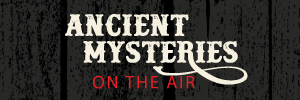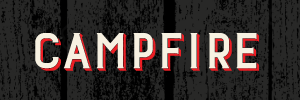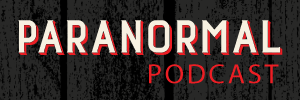Jan 14, 2022
We discuss the nature of reality and past lives with Jim Schmidt.
You can find his books on the subject at his website:
Thanks Jim!
TRANSCRIPT
Please note we do not guarantee 100% transcript accuracy. The below reflects a best effort. Thank you for your understanding.
Jim Harold
Fleeting glimpses of things seen through a veil, darkly. Do we
understand the meaning of these visions? Of life? Why we are here
and how little of our existence we truly understand. Tonight, we
will talk about these things on the Other Side.
Welcome to the Other Side. I'm Jim Harold. So glad to be with you once again. And one of the biggest things that we tackle on these shows from time to time, maybe the biggest, is the idea of reality and existence. And, you know, what is the nature of reality? And we're going to have an interesting discussion today with a guest who has been on the past. He's returning. I'm talking about Jim Schmidt. He is a clairvoyant, medium, and he is working on his second book, which will be out this year. It's called The Way of Existence Book Two, it's book two in the series, The Way of Existence, and it's called Desperate Measures. And we're so glad to have him back on the show. Jim, welcome back.
Jim Schmidt
Thank you for having me, Jim.
Jim Harold
So, if folks didn't hear your first interview, or they're new to
the shows, can you explain The Way of Existence series? What's the
concept?
Jim Schmidt
The concept is, it is my past life memories. They're not fictional.
And one of the reasons I felt the need to write these books is
because people who--a lot of other books I've read where people
remember their past lives, they kind of will remember some general
things, or it's really informational, and it reads like a tourist
guide, kind of like, "here's this place, and here's what happens
there. And here's what people do there," and stuff like that. I
remember down to the level of--I remember people that I knew,
relationships, that we had a family, you know, getting, having a
partner, having children, things like that, what happened our life.
And book one is about that. And it leads up to book two, there's a
war that started and book two is--focuses on my memories of my life
in that war and people that I met and things that happened between
us during the war.
Jim Harold
Now, we're not going to talk about the plot points, per se, the
story of the character, because obviously, we want people to check
out the book, and that would--
Jim Schmidt
Right.
Jim Harold
--that would take away a lot of the enjoyment of the book itself,
however, I wanna talk about some of the underlying principles,
because you have the narrative story, but it also has some
important points to get across. That's correct, right?
Jim Schmidt
Right. Correct.
Jim Harold
So the nature of existence and where we sprang from, you have some
theories on that. And one of the things that you told me, we had
some communication, is that you feel that many of us have the
incorrect assumption that space is the foundation of physical
reality. What did you mean by that?
Jim Schmidt
Well, so many of us have this underlying assumption that we aren't
even aware of that space is, I mean, if something isn't some place,
it doesn't exist. If you talk about anything, you know, it'd be the
first question people ask about, "well, where is it?" You know,
this country, this planet, this, you know, does God exist? If God
exists, well, where is God? It's always, we always think of space,
if something isn't some place, it doesn't exist. So that's the
incorrect assumption that we have that we start out with.
Jim Harold
Now, we think of things like consciousness, we think--I think a lot
of people think that the question is, you know, is the world
spiritual? Is it, you know, what is consciousness? Is it separate
from hard, physical matter? I think most scientists probably fall
into the materialistic camp, where they think it's nuts and bolts.
And if you can't weigh it on a scale or measure it in a test tube,
it doesn't exist. But it--and then the secondary question comes, is
there consciousness? And I think most materialists would say no,
that it's just kind of like a nice little fiction that we've cooked
up. But if I understand correctly, you believe that really, the
truth is kind of the opposite. That consciousness creates reality
and without consciousness, there is no reality. Is that right?
Jim Schmidt
Right. I'm saying that consciousness creates space. Everyone just
assumes that space is always there. It always has been there,
always will be there. But if we look at physics, we can see that
space stretches and shrinks. If you look at the Big Bang, and they
say that all the space in the universe didn't exist until the Big
Bang and, you know, the universe is expanding out, and space is
expanding out, and it can contract, and it can disappear and things
like that. So space is very fluid, and we hang onto this assumption
that it's absolute, and it's not. However, one of the ideas,
and--and I don't want to scare the readers by--by--the book is
about me and the people I know and the things that happened between
us during this time period. But the things I touch on, just again,
the--the point of these books is to just get people started
thinking on these ideas. But that space is created by
consciousness, and consciousness, instead of being like, an
abstract construct of our imagination, consciousness is just an
energy. It's an energy like electricity, like, you know, the weak
nuclear force, or the strong nuclear force, or anything like that.
It's just another energy. And we always kind of think of that as
something, you know, it's abstract, and it's absolutely not. And if
you look at the math and the science that exists--has existed for
about a century now, it keeps pointing back to that fact that, you
know, anybody who's familiar with the double slit experiment, or
Schrodinger's Cat--
Jim Harold
Yeah.
Jim Schmidt
--knows that consciousness and choice have a very real effect on
the physical universe. And that seems like such a strange idea of
so many people, you know, they don't know how that can make it
happen. Well, I mean, I would say, yeah, how can it happen
unless--if consciousness energy, thinking of it as rather an
abstract construct, but just consciousness energy, if that is the
foundation of physical reality, and it creates space, and it
creates matter within space, then it makes absolute sense, perfect
sense that consciousness and our choices and our decisions can
affect the physical, the physical reality, physical world.
Now, you had a lot of people, when they hear the word math, they run away screaming (laughs).
(Laughs) yeah.
Jim Harold
They don't want to talk about math. But obviously, math has a large
role in--in reality, but you--you say that, based on your research,
there's a lot of thought that there's--math has kind of a blind
spot, is that right?
Jim Schmidt
Yeah, um, there is a Veritasium video out, the Veritasium internet
series produced by Dr. Muller. I hope I'm saying his name, right.
He has great videos, I've been watching him for a long time. And I
saw one not too long ago that talks--and the title of the video is,
Math has a Fatal Flaw. And in it, they talk about--and, you know,
you don't have to get into all the math, you don't have to do the
math. It's just a very simple idea. Mathematics is a model for the
physical universe. And that's why when they do these--smash atoms
together, and he's big particle accelerators, they're looking
through the--they kind of know, they expect--they're looking for
what they expect to happen and the way they--they can know what to
expect what--what's going to happen, is because the math has
already been there, in most cases for decades. And mathematics
models the universe so well, that they can actually smash atoms
together and know what to expect, what's going to happen. And
that's why I'm using mathematics and this idea to point as evidence
that consciousness is the foundation of physical reality. Because
as the video talks about how every system of math, and when I say
system of math, let's say that's a model of reality, okay? Because
mathematics models the physical universe. It describes physics and
physics is the laws of the physical universe. And every system of
math ends up having a hole in the middle of it. And in this
Veritasium video, they just kind of leave it at that, like, "Yep,
it's a problem. You know, we can't figure it out." And he even
mentions it a couple times in the video. The problem is always
self-reference. If a computer is aware of itself, then you can't
write a program that the computer can always figure out in every
case. There's always some kind of indeterminacy and self-reference,
if you think about it, self-reference doesn't equal consciousness,
but self-reference, in itself, is knowledge of the self. It
has--the item--there--has to be aware of itself. So self-reference
is representation of self awareness and consciousness. So again,
the--the mathematics is pointing towards, you know, it's telling us
over and over, every system of math has this same problem in it.
And he says it in a video, every system of mathematics has a
problem of self-reference at the center of it, this big hole in the
center of every system of math. And mathematicians look at it, and
since we're not looking for that, like you said, most scientists
are going to be saying that consciousness is some abstract thing.
It's not what they're looking for. So instead of saying--being open
minded, and saying, it's telling us that consciousness is at the
center of the physical universe, they say, well, that's not what
I'm looking for. So I must have got it wrong. And back to square
one, you know, it doesn't work. Because it's simply not what
they're looking for. But if you think about it very logically, it's
what the math is telling us. Over and over, it's that consciousness
energy is at the center of, you know, the model of the physical
universe, and it works for everything right down to smashing atoms
together to apples falling from trees, you know?
Jim Harold
Right, right. And here's a thought for you, I have this thought
because another part of you talked about, I think it gets into
questions of a creator, or massive consciousness and those kinds of
things.
Jim Schmidt
Right.
Jim Harold
But, you know, a lot of people these days are adherence to the idea
of us being a simulation. Now to me, okay, let's take a game like
Sims, one of the Sims games. I don't know, up to four, or five, or
whatever it is now, I don't even know what it is.
Jim Schmidt
Yeah,
Jim Harold
You play one of the Sims games, that took a programmer, and that
took technical people to put that in place. In a way a programmer
sounds a lot like--to me, like a creator. So could people who are
saying that we are part of a computer simulation are using, it's
the same idea, it's just a different way of saying it. It's a
different framework to look at. I'll give you an example. If maybe
an isolated village, people who live a more--less technological
life, indigenous people who had not been exposed to the more
technologically savvy world, were to see a plane. And I think there
have been cases where they call you know, it's a bird, you know, an
iron bird, it talking about the same thing. You're just viewing it
through your own cultural lens. So when people say that the world
is a simulation, aren't they in so many ways, just saying that
there is a Creator, maybe they don't want to say that in those
words, or maybe they're not thinking about that, but isn't it
essentially saying the same thing? Isn't the programmer the
Creator?
Jim Schmidt
Right, and that's what we're talking about here is, who's running
the computer? You know, and the computer in this case is, and
again, I--I want to get away from calling it consciousness because
when we say that, automatically, we're, we're programmed and
conditioned to think of some abstract idea that isn't real. But if
I call it consciousness--consciousness, energy, okay? Consciousness
energy, again, it's an energy, it's just a physical thing. Like,
you know, the electromagnetic force or the weak nuclear force and
the strong nuclear force. If you think about anything else, water
will pool into, you know, into pools, like lakes and ponds and
oceans, and matter will pool into, you know, pools like planets,
and stars, and things like that. There's black holes, or massive,
you know, pools of mass, and bending space and time, and creating
gravity. And even electricity, there's giant electrical storms out
in space. So consciousness energy, like any other kind of energy,
and matter is just, you know, energy compressed. It gathers into
pools. And what you're talking about is the creator, the thing
that's running the computer that this whole simulation that we're
in is running on. That is just the biggest pool of consciousness
energy that's out there. And if you think about it, I mean, it's
not a miracle. It's not something that takes some leap of faith.
It's just simple physics. I mean, if it's consciousness as an
energy, like so many researchers are saying it is now, there's just
got to be a pool out there that just happens to be the biggest and
deepest pool of consciousness, and it's running the show. It's
running the simulation.
Jim Harold
Now, when you talk about past lives, where does that come into
play? Is it the--our kind of traditional view of reincarnation? Do
you have a different view of reincarnation? What are your
thoughts?
Jim Schmidt
Okay, I--I'm not -- don't remember, but we might have touched on
this a little bit in our last interview, um, the problem that
people always get hung up on is they're looking for a one way or
the other answer, it's got to be yes or no. And again, even with
reality itself, you know, is something real, or is it not real? But
if we look at, again, do I have past lives? That's the question,
right? Yes or no. But I am a part of the physical universe. So why
am I any different than the rest of the physical universe? If we
look at an electron around an atom, okay? Most people would say, is
the electron there, or isn't it there? Okay. But I'm not sure how
many of your listeners will be familiar with this. I'll try to keep
it really simple. The electron isn't exactly there. And it's not
exactly not there. It's has--it's almost kind of sort of there. And
if, you know what, what we could--we can make it be there for sure.
For certain. If we look at it, if we focus our attention on it.
Again, consciousness is making something real. And the area until
someone looks at it to see if the electron is there, there's just
an area where they figure it's most likely to be and they--actually
the name for that area is called a, let me see if I get this right.
Electron probability density cloud. And as the name implies, it's
just the area where that electron is most likely to appear, if it
shows up. And I'm really no different than that. So the way I
interpret that is, to the question is, do I have past lives or not?
Because I definitely have all of these memories. And again,
from--from quantum physics that we I think a lot of people are
familiar with the idea that we're all connected, okay? Now some of
us are--some things are more connected than other things, for
example, like quantum entanglement shows that two things are very
connected, much more than other things, okay? But do I have past
lives or not? The problem that people get hung up on here is
they're looking for an absolute yes or no answer. Either that was
my past lives, or it wasn't. And in fact, you know, science and
math are showing us that's not the way it works. The way it works
is, I may get a lot of memories from a series of beings who lived
before me. And I have, by having their memories, that's energy from
them. And how much of that energy is them? And how much is me? I
mean, I was born, and I'm going to live this life, and there will
never be another me. So in one way, I would say no, and in another
way, I would say, yes. It's kind of like seeing if you have a
basket of 12 rocks, and you're standing in a field of rocks, and
you dump out the basket, and then you pick up 12 rocks. And--do you
have the same basket of 12 rocks? Well, I mean, maybe 10 of the 12
are the same, and it's mostly the same? I don't know--mostly, you
know, partially, probably. The thing is, I have enough memories
from them, that I have information that I think could be helpful to
other people and understanding the universe around us and how it
works. And, you know, things like that.
Jim Harold
Very interesting. Indeed. Um, what difference do you think it makes
to our daily lives having a better understanding? I mean, these are
big questions. So I think it's impossible or very, highly unlikely
to have a perfect answer. But to have better answers, and maybe
thinking about this in a more, what can I say, a more sophisticated
way, can help us in our daily lives?
Jim Schmidt
Um, well, I think a big thing is, you know, the question of--of
spirituality. And a lot of people are, especially scientific minded
people are hung up on this, well, I'm going to wait for proof
because I consider myself an intelligent person. And so therefore,
I'm going to wait for proof one way or another.
Jim Harold
Mhmm.
Jim Schmidt
And I think as we touched on, last time, in the last interview,
it's more of a choice. And again, we see that. Like I was saying
with an electron, is it there? Is it not? Well, if we look for it,
it is there. And I think we talked about this last time, there's
been a series of experiments done, in the not too distant past,
where they would run kind of like a double slit experiment where an
electron could show up as a wave or particle. And then a week after
the experiment was run, a researcher would look for the results of
the experiment, if it's going to be a wave or a particle. And they
would expect it to be one or the other in the always found that it,
it was whatever they were looking for, okay? And the spirituality
part of it is because so much of the world nowadays is pushing us
toward that, you know, everything is just a simulation, okay? But
kind of hidden in that is the assumption that, because everything
is a simulation, there is no spirituality, there is no anything
after this, there's nothing to go on to after this. Okay? And I'm
not saying well, it's either there's nothing or else there is this.
It's exactly the way this religion says it is, or that religion
says, or anything like that. I'm just saying there is something
else out there. But the catch is, you don't start that journey
unless you choose to start it. And, again, like I said, it's--it
goes back to that experiment with the electron there. It clearly
shows that our choice has effect on the physical universe. And it
kind of says, like, a lot of people wonder, you know, am I going
to--what happens after I die? Where do I go? Again, there's an
underlying assumption of everything is based on space, where am I
going to go. But if space isn't the foundation of physical reality,
if consciousness is, and we are all being held, always in the
imagination of this consciousness, or whatever it is you want to
call it, a computer, or God, or whatever it is, it's just a
physical energy that's holding us in its attention and focus at all
times, then you don't have to go anywhere. You always have been
within this consciousness' imagination. And you always will be. And
it's just kind of inviting us to begin this journey. But we have to
make that choice. That's all it is. It's a simple choice.
Jim Harold
Now, and that, that--so essentially, do you think all matter, all
reality, everything we know, is essentially a thought?
Jim Schmidt
Well, if you're going to go with the, the traditional definition of
a bot, I'm going to say no--
Jim Harold
No thought. I'm sorry, thought.
Jim Schmidt
Oh, thought, the thought? Well, a thought would imply that there's
a thought there without a personality or a consciousness behind it.
But as far as saying, like, if we are, and I'm not gonna
say--there's, there's a line that says, that we're created in the
creator's image, okay? Now, most people take that in the meaning
that we look like this creator, and therefore this creator must
look like us. And I'm not going to debate whether that is correct
or incorrect or anything like that. But I will say that that is not
the only meaning of that. If you say, I'm going to imagine
something, imagine that the base word of that word is image, okay?
So if you say, I'm going to create an image on a piece of paper,
that's great. You're going to draw a piece of paper. Now I would
say, "Hey, Jim, I wanted to create an image in your mind." So what
I would say is when it says were created in the Creator's image,
it's saying that we're all created in the image of the Creator in
its imagination. And this is not a new idea. It's a very old idea
that everything is the Dreamer's dream. But to people have science
and math and intelligent people, this is silly superstition of
native people and--and primitives. But again, our math and science
is pointing toward--pointing us toward that. That we are a thought
or an image that's constantly held in the attention of this, this
consciousness, its imagination. So essentially, I--were--a thought
would be a--not deep enough. I would say more than a thought, we're
kind of, I'm gonna really oversimplify this and say like, we're
like imaginary friends of this consciousness. And by just like, we
can make the electron real or appear by looking at it. This
consciousness makes us real by paying attention to us, which it
always does. And literally, if it didn't, it wouldn't exist.
Jim Harold
Now--
Jim Schmidt
And I'm going a little off the deep end here.
Jim Harold
That's alright--
Jim Schmidt
This is way deeper than I get into in my book.
Jim Harold
Well, that's what we do on these shows. Yeah, that's, we--we kind
of go off the deep end on the shows from time to time. Now, let me
ask you this. So, and you mentioned it in some of the materials
sent over. The idea, you know, the--the idea of we're created in
the Creator's image, you know, obviously, it goes back to the Bible
and ancient texts. So it--does that map to what you--what you
believe you've found?
Jim Schmidt
Yeah. Yeah. Also, again, in a certain religious book. I'm sure
everyone's familiar with the line, um, that when someone asked the
Creator, "What's your name?" The answer was, "I am," and people, I
think, misinterpret that all the time. I've heard of every
religious person, from every different religion, interpret that as
reflexive as, "I am what I am," but that's not what it is. The
reason we name something is to differentiate it from everything
else. So if I call you Jim, and that guy is Steve, so if we're in a
crowded room, I can say, "Hey, Jim," and you turn around and other
people don't. The blue house, the red car, you know, Kansas, you
know which state I'm talking about. We name things to differentiate
them from everything else. So if this thing's name is I am, that
means that everything else is not. The Creator exists, and nothing
else exists without it, without its attention. And again, our
quantum physics experiments show us that we do the same thing. This
is the way the physical universe works.
Jim Harold
Interesting, very interesting. So when can we expect the book? When
do you think this next one will be coming out, roughly?
Jim Schmidt
Um, I wish I had an absolute answer for that. Like many other
companies, the company I'm working for is having trouble getting
enough help. And about two months ago, they put us on 10 hours a
day, six days a week.
Jim Harold
Oh my.
Jim Schmidt
Yeah, I've been working a lot. I was gonna have the book done, it's
like 85% written out, the story's all done, the plots done, it's
all--it's just matter of putting in keyboard time to type it. And I
self-edit, and get it printed and stuff like that. I have a great
company out in Washington State print it for me. So we just found
out that, again, with recent COVID cases and some flu cases and
things like that. And we are, you know, good problem to have, we're
busier than we usually have been, about double the business that we
had this time last year, we're gonna stay on 10 hour days, at least
for a few more weeks here. And I am trying to find the time and
energy to just make the big push, and finish the book and get it
printed and available. But it is, as soon as it's available. It
will be on my website, twoebooks.com. That's twoebooks.com. And if
you go there now, you can see my first book. You don't necessarily
need to buy the first book to understand the second, but it will
make things a little clearer.
Jim Harold
Very good. Well, I appreciate it very much. Thank you for your
time, Jim. And I say this to you and everybody. We are all under
extraordinary times, so I really appreciate everybody's effort to
put in the extra time and effort to help keep society moving, and
also, doubly so, to have the have the gumption and the
determination to press on through a creative project like this as
well. I thank you so much for joining us, and give us that website
one more time.
Jim Schmidt
It's T W O E, for The Way of Existence, twoebooks.com.
Jim Harold
Very good. Well, Jim Schmidt, thank you so much for joining us
today on the Other Side.
Jim Schmidt
Thank you.
Jim Harold
And thank you for tuning in. We appreciate it. And you know one
thing that we like to do on these shows is make you think, and we
hope that we did that today. We'll talk to you next time. Have a
great week everybody. Bye bye.










